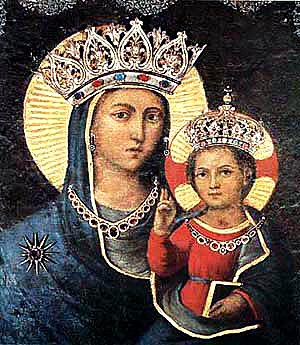
How does English use those two words? Whole can mean all in the sense that everything or every person is included, no exceptions. It may imply that nothing has been omitted. It can also suggest perfection, a state of completeness to which one can add nothing else.
Unique may mean unusual, that is, marked by a distinctive quality. That is how many people use the word today. The root of unique is one. Thus, Webster gives as the first meanings for unique the connotations of sole and unequaled (note the useful commentary at the conclusion of the entry).
The 12th-Century monk, Blessed Isaac of Stella, preaching about Mary and the Church referred to the "whole Christ and the unique Christ." By the first--whole--he meant the entire church, each and every member of it. By the second--unique--he stated that Christ Jesus is the only individual whose perfection is complete and who has no equal.
Because Messiah Jesus lived, gave his life for us and rose from the dead, we give birth to him by the manner of our lives. "In a way, every Christian is also believed to be a bride of God's Word, a mother of Christ, his daughter and sister, at once virginal and fruitful." The images, heeped one on another, enlarge our possibilities and give us new purpose. (The last phrase frequently appears in prayers after communion, imploring the grace to conform our lives to the Sacrament of the Eucharist in which we shared.)
Read Abbot Isaac's brief Sermon 51 to prepare for the final week before Christmas Day.
___________________
Photo: Famous painting of Madonna Della Strada in the Church of the Gesu in Rome, Italy. (Source: Wikipedia; Rights: Public domain)
No comments:
Post a Comment